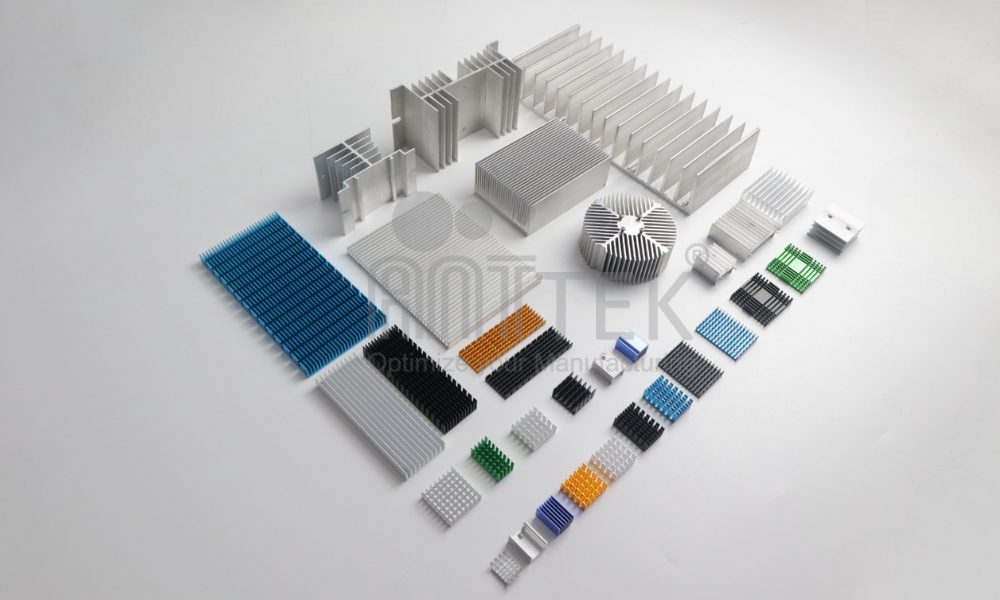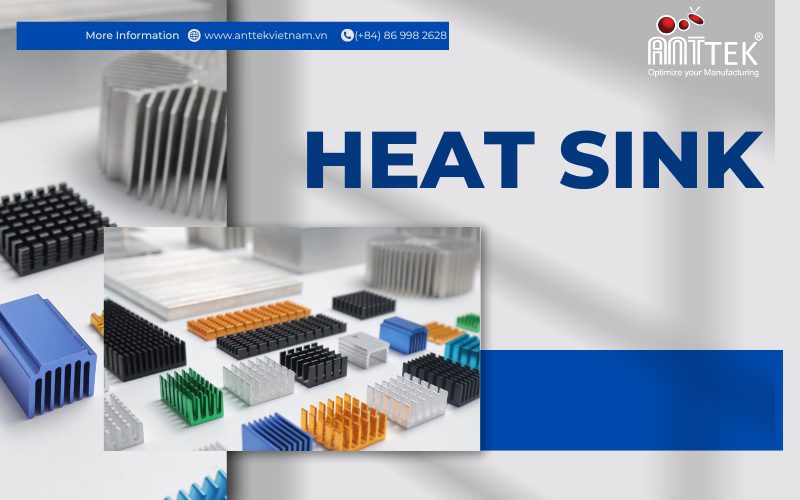Applications
Unlocking the Power of Heat Sinks: Keeping Your Devices Cool
In the realm of modern technology, the race for faster processing speeds and higher performance has led to an inevitable byproduct: heat. Whether it’s your laptop, gaming console, or even your car’s engine, excessive heat can degrade performance and, in extreme cases, cause permanent damage. This is where heat sinks come into play
What is a Heat Sink?
A heat sink is a passive cooling device that absorbs and dissipates heat away from a high-temperature device, such as a CPU, GPU, or power transistor, into the surrounding environment. It essentially acts as a conductor between the heat-generating component and the ambient air, allowing thermal energy to spread out and be released efficiently.
How Do Heat Sink Work?
The basic principle behind heat sinks is simple: they increase the surface area in contact with the surrounding air, which enhances heat transfer. Most heat sinks are made of highly conductive materials like aluminum or copper due to their excellent thermal conductivity properties. These materials efficiently conduct heat away from the heat source.
Additionally, the surface of a heat sink is often designed with fins or ridges, increasing the surface area even further. As heat flows from the source to the heat sink, it disperses across these fins, where it can then be transferred to the surrounding air through convection.
Types of Heat Sinks
Active Heat Sink
These heat sinks incorporate additional components, such as fans or pumps, to enhance heat dissipation. Fans help to increase airflow over the heat sink, expediting the cooling process. Active heat sinks are commonly used in high-performance computing applications where passive cooling alone may not be sufficient.
Passive Heat Sink
These heat sinks rely solely on natural convection to dissipate heat. They are simpler and quieter than active heat sinks since they do not require additional moving parts. Passive heat sinks are often found in consumer electronics like laptops, where noise levels and power consumption are critical considerations.
Liquid-Cooled Heat Sink
Liquid cooling systems use a combination of a heat sink and a coolant fluid to transfer heat away from the source. The liquid absorbs heat from the component and then circulates to a radiator, where it releases heat to the surrounding air. Liquid cooling systems are particularly effective in high-performance applications, such as overclocked CPUs and gaming PCs.

Applications of Heat Sink
Computing Devices
Heat sinks are extensively used in computers, laptops, servers, and other electronic devices to cool down central processing units (CPUs), graphics processing units (GPUs), and other semiconductor components.
Automotive Industry
Heat sinks play a crucial role in automotive systems, cooling down components such as engine control units (ECUs), power electronics, and LED headlights.
LED Lighting
LEDs generate heat during operation, and heat sink help to dissipate this heat, ensuring optimal performance and longevity of the lighting fixture.
Industrial Equipment
Heat sinks are also employed in various industrial applications, including power supplies, motor drives, and amplifiers, where efficient heat dissipation is essential for maintaining reliability and performance.
The Future of Heat Sink
As technology continues to advance, the demand for more efficient cooling solutions will only increase. Innovations in heat sink design, materials, and manufacturing processes are continually pushing the boundaries of thermal management.
One promising area of research is the development of advanced composite materials with superior thermal conductivity properties. Graphene, carbon nanotubes, and other nanomaterials show great potential for enhancing heat sink performance while reducing weight and size.
Furthermore, with the rise of artificial intelligence (AI), edge computing, and 5G networks, the demand for high-performance computing systems in compact form factors is growing. This trend will drive the development of innovative heat sink solutions tailored to the unique thermal challenges of next-generation devices.
In conclusion, heat sink are indispensable components in the world of electronics and thermal management. Whether it’s keeping your laptop cool during intense gaming sessions or ensuring the reliability of critical industrial equipment, heat sinks quietly work behind the scenes to prevent overheating and extend the lifespan of your devices. As technology continues to evolve, the importance of effective heat dissipation will remain paramount, making heat sinks an essential part of our technological future.




